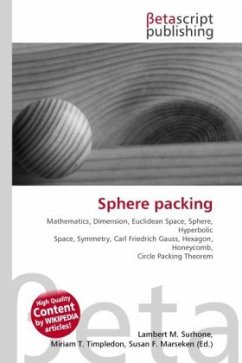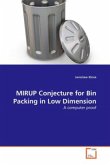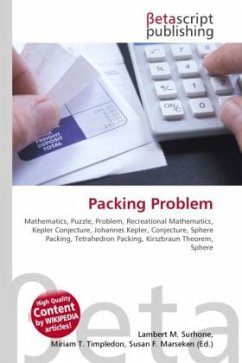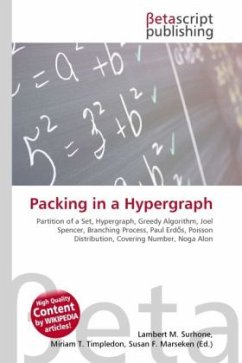High Quality Content by WIKIPEDIA articles! n mathematics sphere packing problems concern arrangements of non-overlapping identical spheres which fill a space. Usually the space involved is three-dimensional Euclidean space. However, sphere packing problems can be generalised to two dimensional space (where the "spheres" are circles), to n-dimensional space (where the "spheres" are hyperspheres) and to non-Euclidean spaces such as hyperbolic space.A typical sphere packing problem is to find an arrangement in which the spheres fill as large a proportion of the space as possible. The proportion of space filled by the spheres is called the density of the arrangement. As the density of an arrangement can vary depending on the volume over which it is measured, the problem is usually to maximise the average or asymptotic density, measured over a large enough volume.
Bitte wählen Sie Ihr Anliegen aus.
Rechnungen
Retourenschein anfordern
Bestellstatus
Storno








